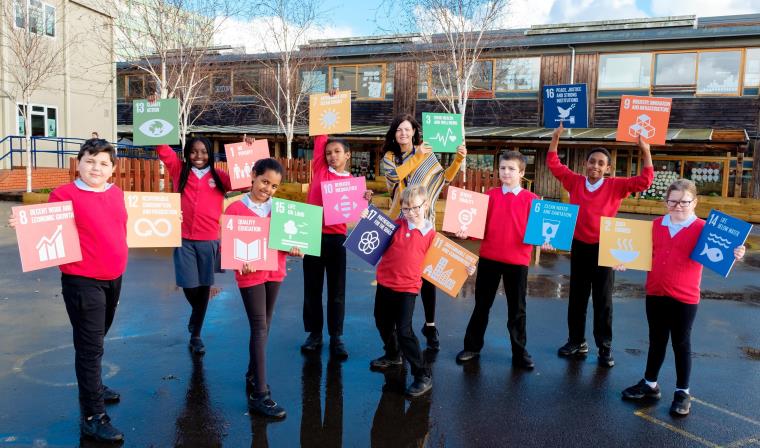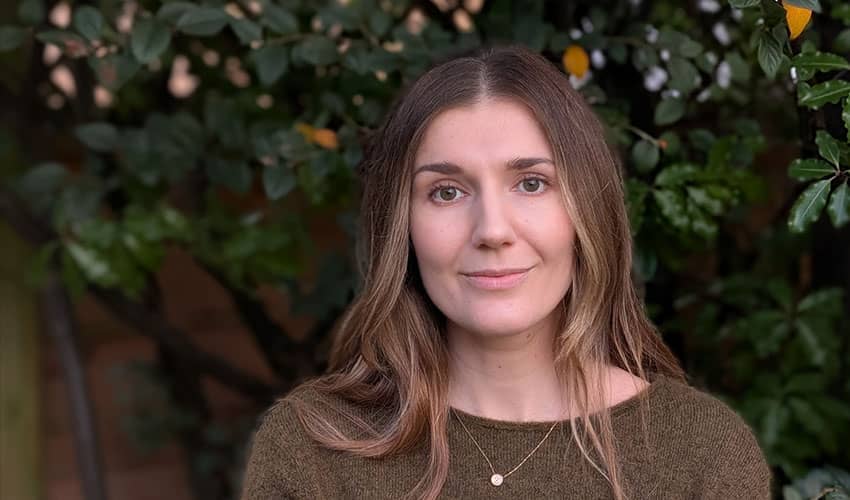Survey reveals young people are more willing than adults to tackle climate change

A survey carried out by the University of the West of England (UWE Bristol) and the Global Goals Centre Bristol has revealed that young people in the UK are prepared to lead the way when it comes to combatting climate change and are more willing than adults to make changes to their lifestyles.
A total of 1,170 participants aged 7–18 were surveyed, answering questions that related to their understanding of climate change, it’s effect on people in the UK and abroad, willingness to make lifestyle changes and who they feel is responsible for tackling climate change.
The questions in this new piece of research were based on a survey commissioned in March by Sky News which reported that a quarter of Britons are unwilling to change key habits to tackle climate change. All of the 1,705 people surveyed by Sky/YouGov were aged 18 or over which prompted researcher Dr Verity Jones at UWE Bristol to launch her own survey and uncover the views of young people.
Dr Jones said: ‘‘There are over 13 million young people in Britain and while they may not be able to vote, many are extremely concerned about the climate crisis and want to have their voices heard. Surveys such as those carried out by Sky earlier this year completely overlook the views of young people despite the fact that they are the generation who will be most affected by climate change. It is vital that young people are included in data collection around climate change and that their views are considered.’’
A comparison between the two survey results suggests young people are more aware than adults of the impact of climate change with 84% of young people believing that people in other countries have been affected by climate change compared to just 69% of adults.
While the results suggest a similar level of understanding amongst young people and adults when it comes to climate change and associated terms such as renewable energy, carbon emissions and greenhouse gasses, young people were much more open to changing their lifestyles to combat the effects of climate change. Seventy two percent of young people surveyed said they are willing to support key habits in reducing climate change compared to 62% of adults. These changes include not using diesel or petrol cars, paying more for flights, meat and heating homes.
The survey also revealed that the majority of young people (53%) support the ban of the sale of new diesel and petrol cars compared to only 29% of adults, while 82% of young people support a shift away from a reliance on fossil fuels.
While a majority of young people demonstrated a high amount of knowledge around climate change and recognise the importance of political leaders in mitigating the crisis, they had little knowledge of political meetings such as COP26 or who the current political leader for climate change is; a finding that was shared in the adult Sky/YouGov survey carried out in March.
The full findings of the survey are published in the Hear our Voice report written by Dr Verity Jones, along with recommendations on how young people’s views can be considered in data collection and how schools can improve education on climate change and alleviate feelings of eco-anxiety among young people. The report will be used by the Climate Change Education Research Network where teachers from across the south west work towards developing inclusive climate change curriculums that inform school policy across the region in England and Wales.
The report will also be used to develop the Global Goals Centre in Bristol; the world’s first immersive visitor attraction dedicated to the UN Sustainable Development Goals. The Global Goals Centre is an educational charity based in Bristol. They develop cutting edge projects with young people exploring climate and equality issues with a positive narrative to help overcome climate anxiety and are creating a unique online resource hub to help educators and professionals achieve the Global Goals.
Related news

16 February 2026
UWE Bristol researchers awarded grant to explore impact of asset recovery on offenders
UWE Bristol academics have been awarded funding to explore of the impact of asset recovery on deterring offender behaviour and disrupting crime networks.

10 February 2026
Work by UWE Bristol lecturer features in Government’s National Cancer Plan
Work by a UWE Bristol academic has been included in the Government’s National Cancer Plan.

23 January 2026
On-demand minibus services beneficial in rural areas but face financial challenges, trials suggest
Trials of ‘demand responsive transport’ minibus services boosted connectivity for people in rural and suburban areas, according to a new report produced by UWE Bristol researchers.

18 December 2025
UWE Bristol professor appointed National Institute for Health and Care Excellence CEO
Jonathan Benger CBE, Professor of Emergency Care at UWE Bristol, has been appointed as the new chief executive officer of the National Institute for Health and Care Excellence (NICE).

17 December 2025
Findings revealed from first UK study into experiences of mothers who are survivors of rape pregnancy
UWE Bristol academics have revealed the findings of the first UK-based study of the experiences of mothers who are survivors of rape pregnancy.

11 December 2025
Social media influencer work is far more demanding than it looks, research finds
A study exploring the mental health impacts of social media influencer work has revealed that life online is far more demanding than it appears.

25 November 2025
UWE Bristol experts join film Q&A exploring music and melodrama
Academics will take part in the Cary Comes Home Festival, with a post-screening Q&A exploring music, melodrama and emotional storytelling in classic cinema.

17 November 2025
Urgent reform needed to support ambulance-delivered end of life care, study finds
More than three quarters (78 per cent) of paramedics sometimes fear doing the wrong thing when caring for people in the last year of life, new research has found.

13 November 2025
Bristol’s screen industry experiences “boom-and-bust cycle” after post-pandemic recovery, new research from UWE Bristol finds
New research from UWE Bristol provides detailed insight into Bristol's screen sector.

13 November 2025
New AI research to revolutionise animal welfare
A UWE Bristol research project will combine behavioural science and AI to create technology that understands not only what animals do, but how they feel.

10 November 2025
Lessons from Low Traffic Neighbourhoods will drive better public engagement, study finds
Lessons from Low Traffic Neighbourhoods have informed a new toolkit to improve engagement with the public on challenging local street issues.

06 November 2025
First-of-its-kind study aims to help more people spend their final days at home
A new study will explore how architectural design could support end-of-life care in domestic settings.






